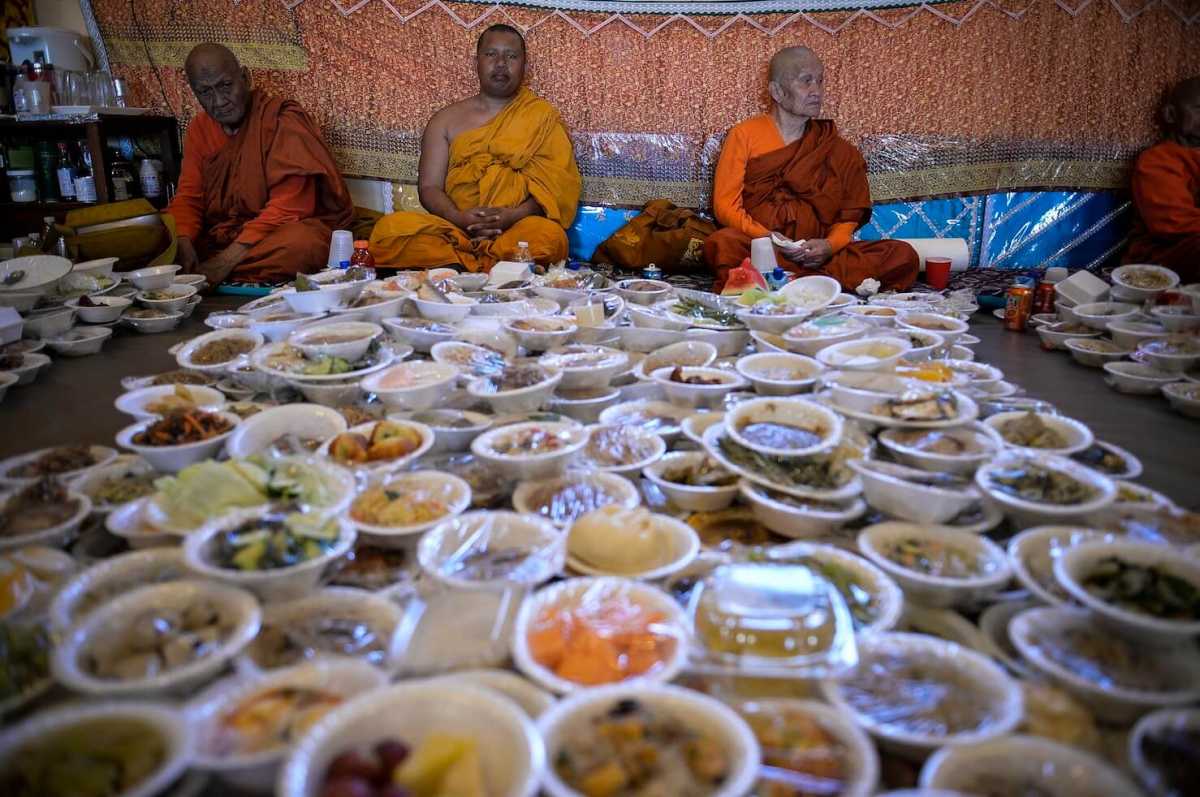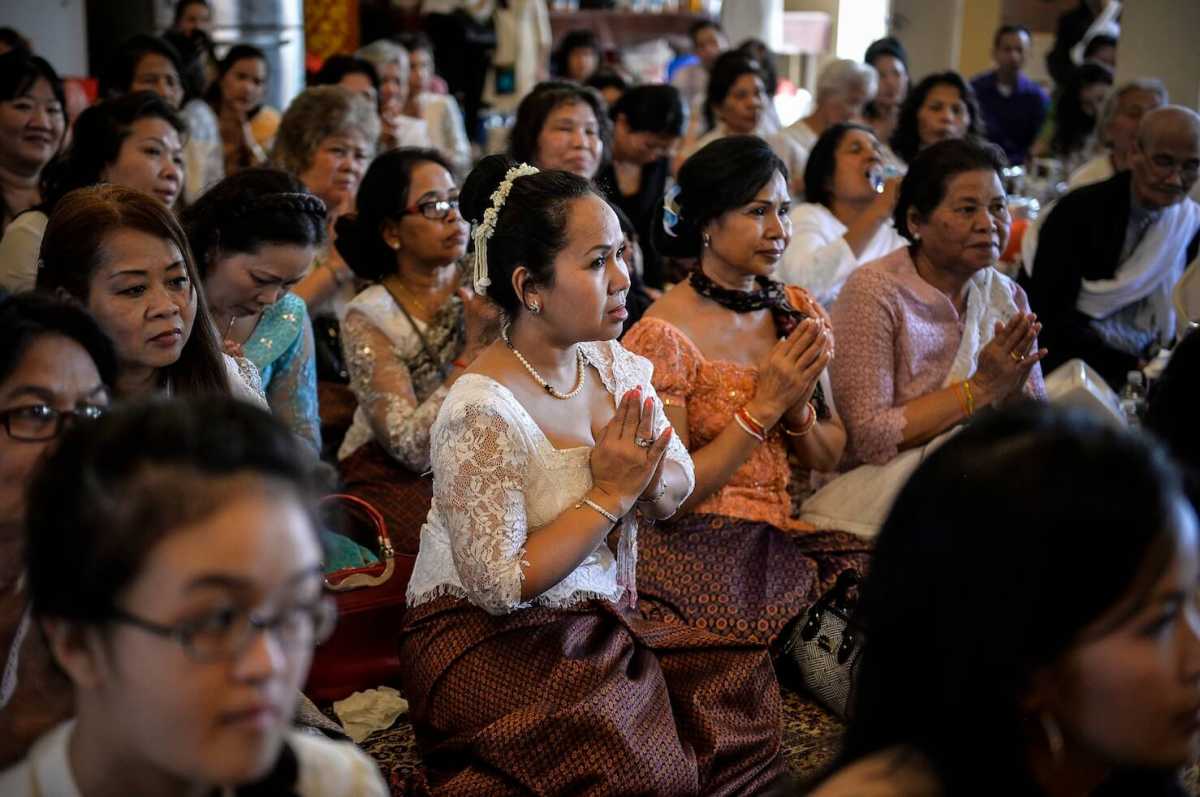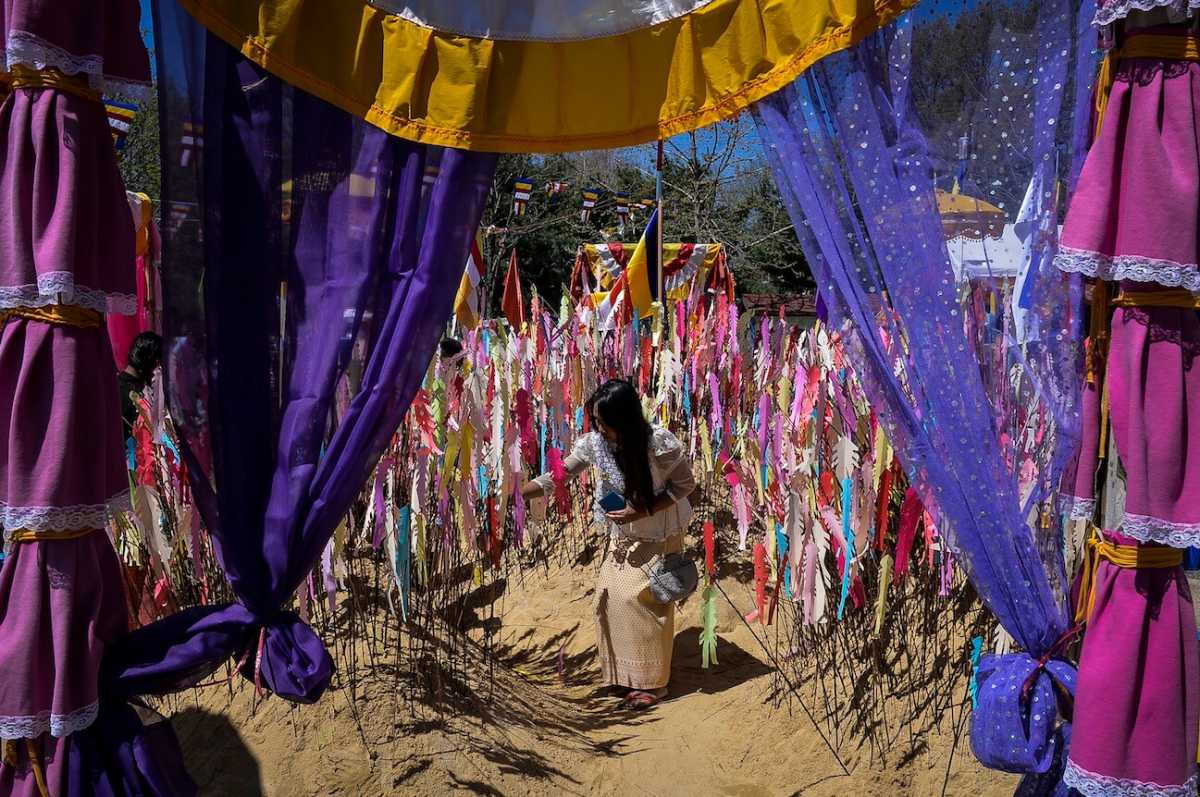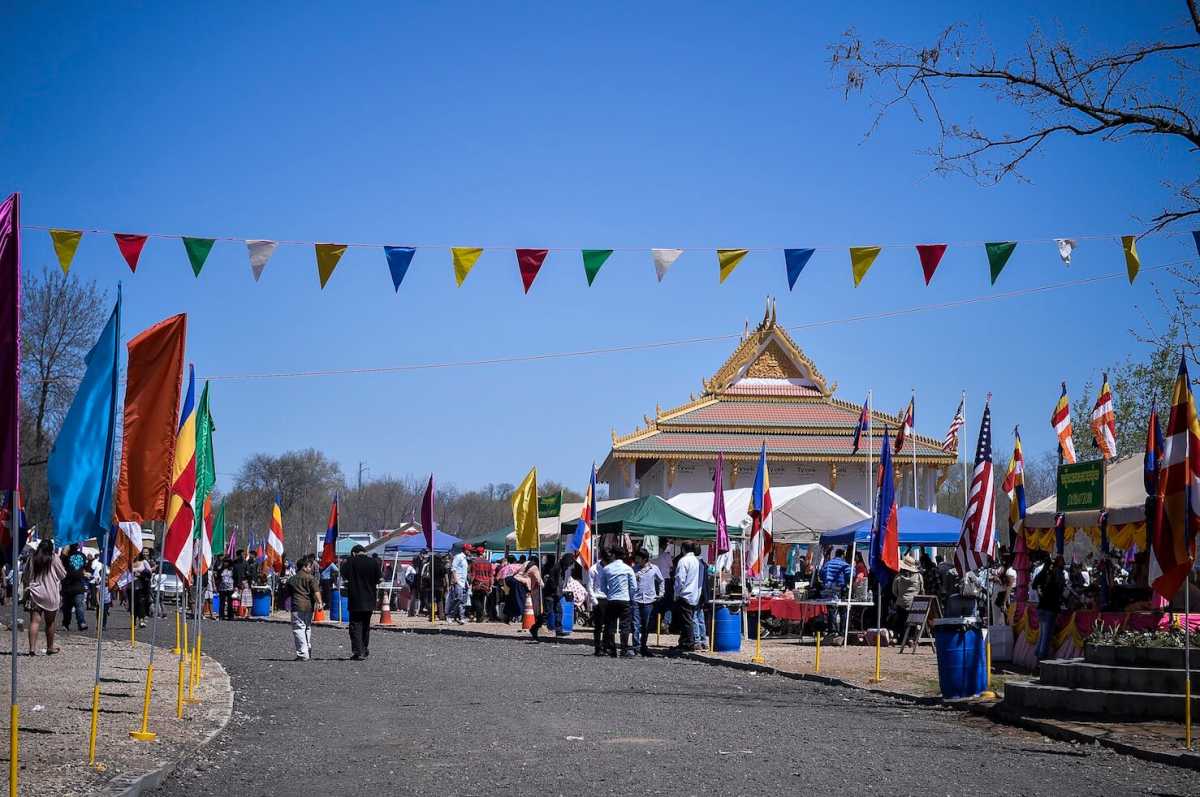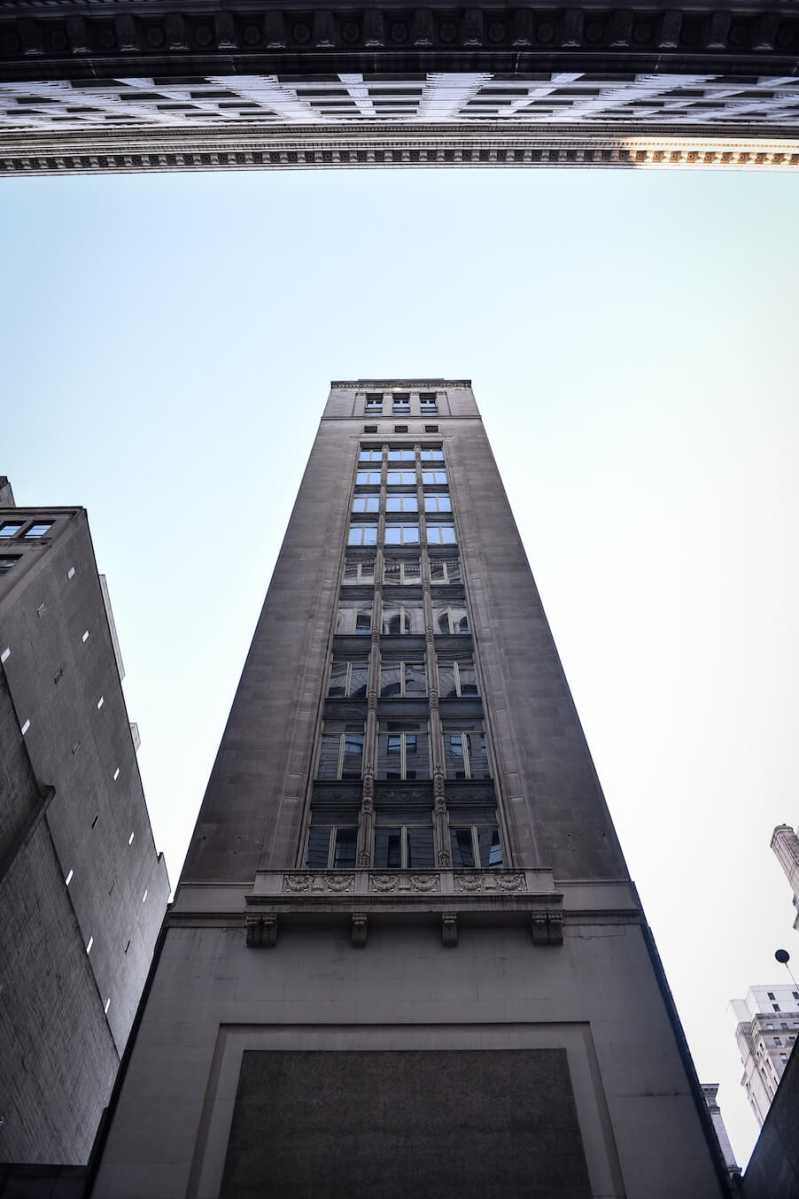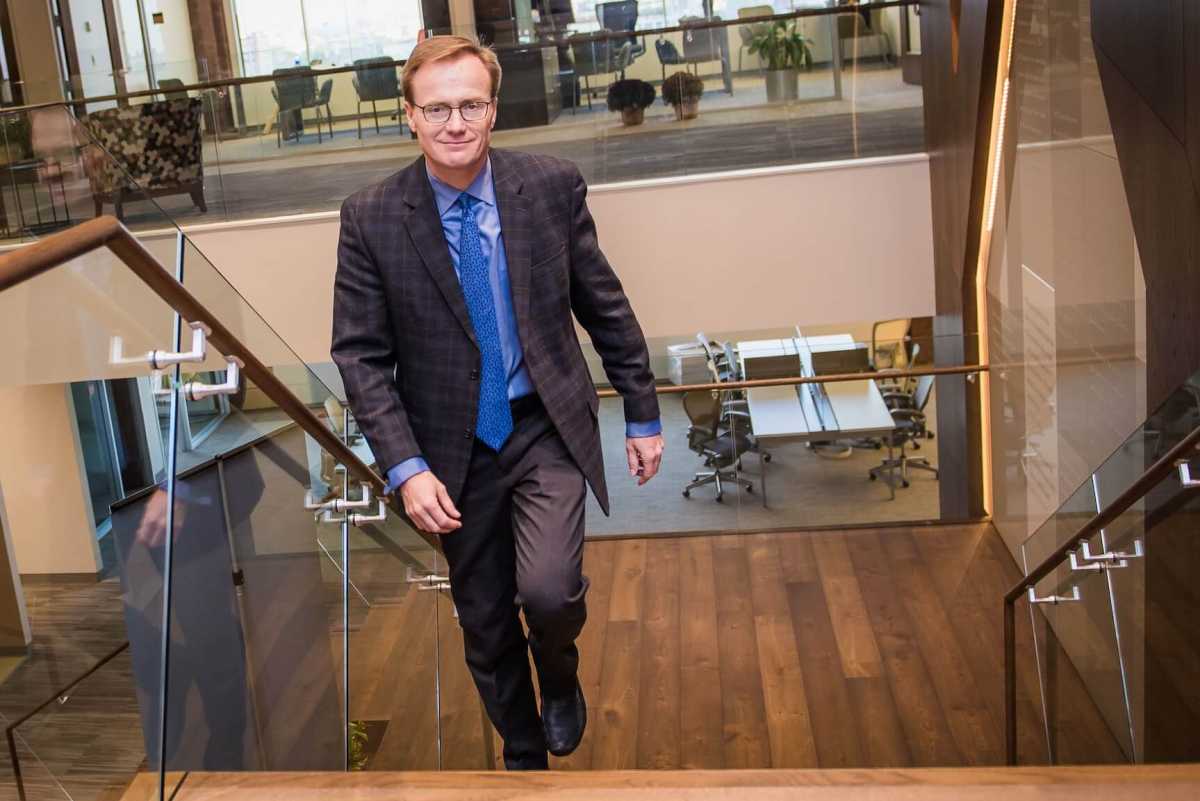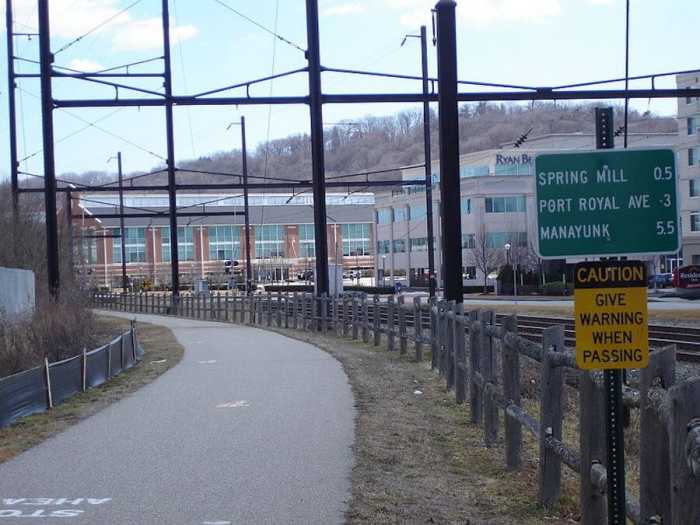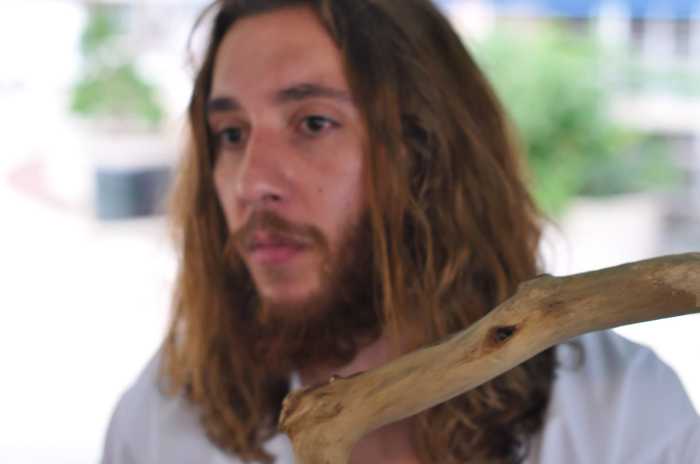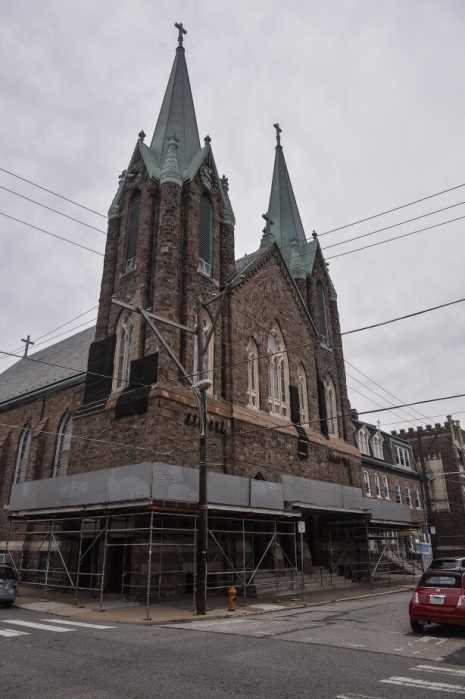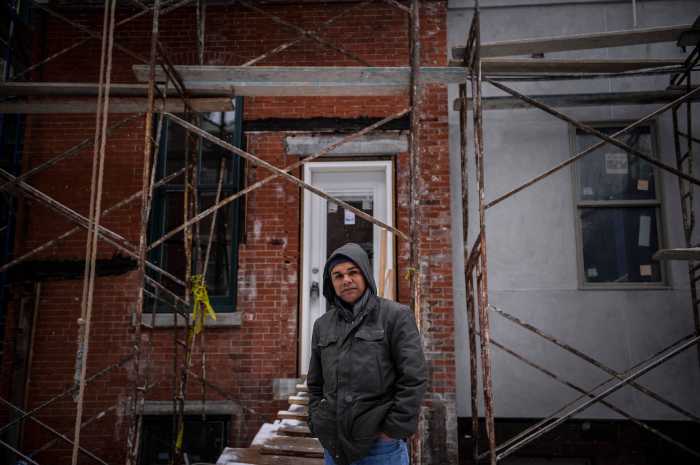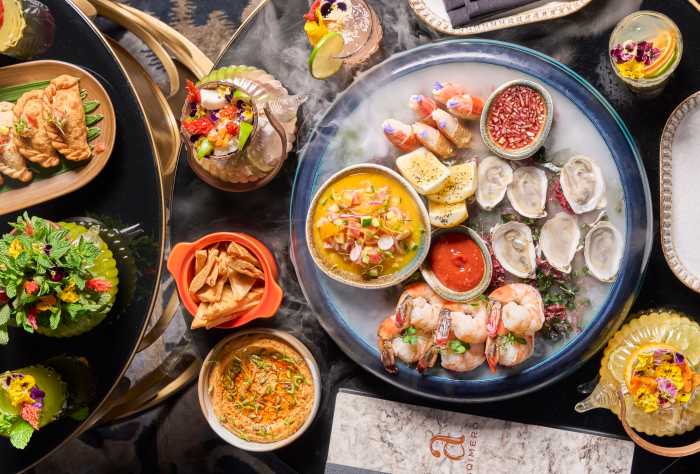They brought thousands of tiny bowls of dumplings, eggs, spicy pork, sticky rice and pineapples and placed them on the floor before a group of Buddhist monks as an elder chanted a prayer.
Hundreds of Cambodian Buddhists clasped their hands together as they watched the monks pray and eat as part of the recent Cambodian Buddhist New Year celebrations.
But this wasn’t in Phnom Penh, or even in one of Philly’s better-known immigrant communities. It was at a massive former industrial site off 58th street and Lindbergh Boulevard in Southwest Philly, whereKhmer Palelai monasteryhas risen. “In Cambodia, it’s a tradition for regular people to follow the monks, to listen to them. We want to do the same thing over here by keeping it alive and keeping it going,” said Han Hea, 36, the number two or right-hand monk of the monastery, through a translator. RELATED:Philly to become first big city on East Coast with electric buses With Pope Francis having just visited Philly for the World Meeting of Families, a Mormon temple in Center City expected to open up this fall, and organizations like the American Bible Society moving to Philadelphia last year, the city seems on the cusp of becoming a virtual mecca of religions in the U.S. Why? One factor may be Philly’s cheap real estate. Khmer Palelai has 238,000 square feet and houses12 monks, which Han believes may make it the largest Cambodian monastery in the country. Not bad for a temple that started out in a South Philly rowhouse in 1986. “When the opportunity comes, we would like to spread it out more,” Hea said. “We don’t want to force anything, just take care of what we have, then branch out and spread the teachings.”
What’s behind the boom? Professor Khalid Blankenship, head of Temple University’s Department of Religion, said it is evidence that in Philly, religion isn’t going anywhere, even as less and less people identify as belonging to any particular religion. “If you look at the enormous quantity of classical stone churches all over the place, you can see this isn’t a new phenomenon, but is something that’s been a constant theme for decades, if not centuries,” Blankenship said. “I would by no means say religion is de facto declining or spirituality is on the way out, because people are spiritual in ways that are not related to organized religions of the classical type. … Now, unlike 70 years ago, you have a lot of American Buddhists. There’s a considerable growth of Islam.” But why is Philly so ripe for religious organizations to grow? That answer depends on who you ask.
A Mormon temple is opening for the faithful in Center City this September, five years after construction began, because the 25,000 Mormons in the Philadelphia area deserve to be close to a temple, a spokeswoman said. RELATED:Pizza Brain founder goes public with weed treatment for son’s cancer There are only 148 Mormon temples in the world, and they are intended for special ceremonies, rather than weekly services, which take place at meetinghouses, saidCorinne Dougherty, a local spokeswoman for the church. “Philadelphia is one of the last major cities in the U.S. to receive a temple, so it really is like filling in the gaps in the map,” Dougherty said. “Before Philadelphia, we would go to Manhattan or we would go down to Washington, D.C., so it’s just making the temple more accessible to the members of the church in our area.” The Church of Scientology also owns a 15-story building at Chestnut and 13th streets, which is still vacant and awaiting development. A Scientology spokeswoman did not immediately respond to a request for an update on plans for the building. One organization that definitely loves Philadelphia is the historic American Bible Society, which moved its central offices from New York City to Philadelphia in October 2015. They now have 200 employees working out of two floors in an Old City office, from which the Society, one of the nation’s oldest nonprofits, translates and distributes the Bible to people worldwide. “There is a history of religious freedom here that has helped provide a strong foundation for us,” said Andrew Hood, the Society’s director of communications.
Leaving New York was definitely due to the expense of maintaining an office on Broadway in Manhattan. But choosing Philly wasn’t just about cost – it was also becoming part of the city as certain areas are experiencing a revitalization. “The city has a vibrancy to it right now. There is a sense that Philadelphia is growing and on the upswing,” Hood said. “The staff I’ve spoken to feel privileged to be part of that and to live in the midst of it.”




